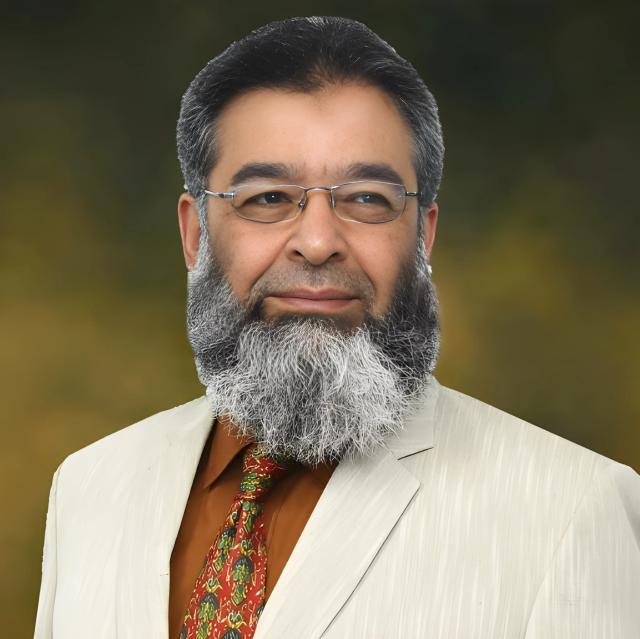by Muhammad Mohsin Iqbal
The matter of alcohol consumption and its trade in an Islamic state demands grave and contemplative consideration. Islam, as a complete code of life, addresses not only the spiritual elevation of man but also the preservation of his physical, moral, and social wellbeing. At the heart of this discourse lies the Qur’an and the Sunnah of the Prophet Muhammad (Peace Be Upon Him), which leave little ambiguity regarding the status of intoxicants in a Muslim society.
The Qur’anic approach to the prohibition of alcohol was gradual and filled with divine wisdom. Initially, the Qur’an acknowledged the presence of both benefit and harm in wine and gambling. In Surah Al-Baqarah (2:219), Allah says: “They ask you concerning wine and gambling. Say: In them is great sin and [some] benefit for men, but the sin of them is greater than their benefit.” This verse invites the intellect to weigh the moral and societal cost of intoxicants and lays the foundation for future prohibition.
The next command came in Surah An-Nisa (4:43): “O you who believe! Do not approach prayer while you are intoxicated until you know what you are saying…” This guidance, though not a full prohibition, created a consciousness among believers that intoxication impaired reason, especially in the divine presence.
Finally, the complete and decisive prohibition is declared in Surah Al-Ma’idah (5:90–91): “O you who believe! Intoxicants and gambling, sacrificing to stones, and divination by arrows are abominations of Satan’s handiwork. So avoid them that you may be successful. Satan only desires to cause enmity and hatred among you through intoxicants and gambling and to hinder you from the remembrance of Allah and from prayer. So, will you not then desist?” These verses combine legal prohibition with the underlying philosophy: that intoxicants are a tool of Satan to sow discord and distance man from his Creator.
The Sunnah of the Prophet (peace be upon him) reinforces and elaborates upon these commandments. He said, “Every intoxicant is Khamr, and every Khamr is haram (forbidden).” (Sahih Muslim). The Messenger of Allah also declared, “Whatever intoxicates in large amounts, a small amount of it is also forbidden.” (Sunan al-Tirmidhi). This hadith eliminates the loophole often sought by those who claim moderation, as even a sip is condemned if the substance in quantity leads to intoxication.
Moreover, the Prophet (peace be upon him) pronounced a curse upon all who are associated with intoxicants. In a narration found in Sunan Abi Dawood, he said: “Truly, Allah has cursed Khamr (intoxicants): the one who produces it, the one for whom it is produced, the one who drinks it, the one who serves it, the one who sells it, the one who buys it, the one who squeezes it, the one who carries it, and the one to whom it is carried.” This comprehensive proscription signifies that in an Islamic society, the entire chain of alcohol production and trade is deemed unlawful.
The harm caused by intoxicants is not merely spiritual but manifests visibly in social decay. Alcohol consumption impairs the intellect, weakens the sense of accountability, and opens the door to a multitude of sins — including violence, indecency, neglect of duties, and public disorder. Countless reports across the world associate alcohol with road accidents, domestic abuse, moral corruption, and even suicide.
Islam, in its foresight, endeavors to protect five primary objectives: religion, life, intellect, lineage, and property. Alcohol poses a threat to all five. It compromises faith by distancing one from prayer, it endangers life by causing accidents and health crises, it destroys intellect — the very distinction of mankind — and often leads to the ruin of families and wealth.
Nonetheless, some may argue that alcohol trade yields economic benefit. In secular societies, it generates revenue, provides employment, and supports hospitality industries. However, Islam’s ethical economy prioritizes lawful sustenance and societal wellbeing over profit alone. What benefit is wealth that comes at the cost of broken homes, diseased bodies, and corrupted hearts?
Similarly, liberal arguments for individual freedom fall short in the Islamic paradigm. Islam does not deny personal liberty, but it binds it within moral and divine boundaries. In an Islamic state, the law reflects not just public opinion but divine guidance. True freedom is not the license to indulge in self-harm but the ability to live righteously in accordance with divine wisdom.
Furthermore, Islamic history offers examples of just implementation. After the final prohibition, the companions of the Prophet immediately destroyed their wine, and the streets of Madinah flowed with it. Their obedience and trust in divine command became the foundation for a healthy and morally upright society.
Social advantages of this prohibition are numerous. A sober community is more productive, less violent, and spiritually conscious. It nurtures responsible citizens, stable families, and a culture where honor, clarity of thought, and modesty prevail. The youth are safeguarded from addiction, and public safety is ensured.
However, enforcing prohibition must be handled with wisdom. An unprepared society may resist or fall into clandestine practices. Thus, reform must begin with education, da’wah, and moral persuasion. Laws must reflect the spiritual readiness of the people, as was exemplified by the Prophet himself, who laid years of groundwork before implementing full prohibition.
In conclusion, the Islamic view on alcohol is deeply rooted in divine revelation and prophetic wisdom. It balances the spiritual, moral, and social dimensions of life. While recognizing worldly temptations and superficial benefits, Islam calls upon the believer to choose purity over indulgence, order over chaos, and divine pleasure over transient gratification. In the vision of an Islamic state, the prohibition of alcohol is not merely a legal statute but a testament to the pursuit of a higher, more sacred civilization.

















